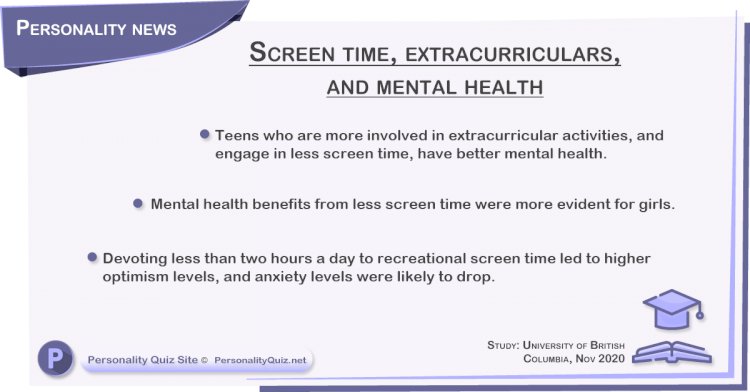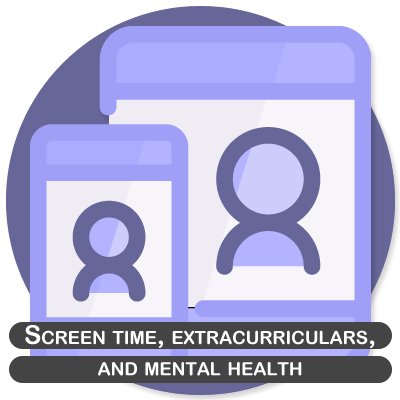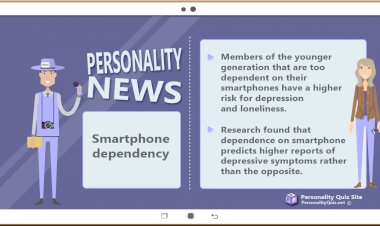Screen time, extracurriculars, and mental health
Teens who are more involved in extracurricular activities, and engage in less screen time, have better mental health.

by the University of British Columbia
Main titles
- Devoting less than two hours a day to recreational screen time led to higher optimism levels, and anxiety levels were likely to drop.
- Mental health benefits from less screen time were more evident for girls.
“Although we conducted this study before the COVID-19 pandemic, the findings are especially relevant now when teens may be spending more time in front of screens in their free time if access to extracurricular activities, like sports and arts programs is restricted due to COVID-19. Our findings highlight extracurricular activities as an asset for teens’ mental wellbeing. Finding safe ways for children and teens to continue to participate in these activities during current times may be a way to reduce screen time and promote mental health and wellbeing.” - Eva Oberle

- It was much less likely for teens to engage in more than two hours of screen time if they participated in extracurricular activities.
Source: news.ubc.ca

 vneo
vneo 













